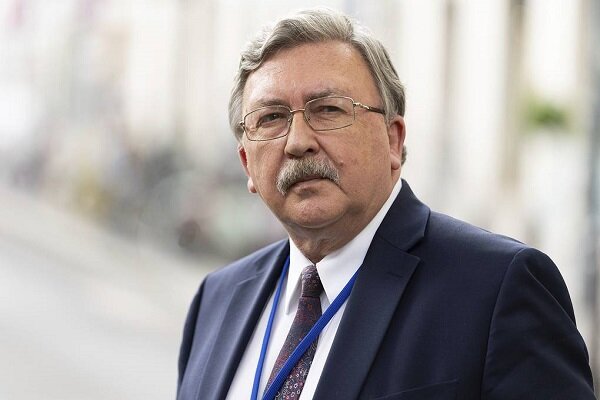The West left the negotiations to revive the JCPOA on the eve of the agreement/ the current position of the US is still unclear

report Mehr News Agency, for those people who closely follow the subject of the Joint Comprehensive Plan of Action or “JCPOA”, Mikhail Ulianov is a familiar face. Ulianov as the permanent representative of Russia in the international organizations based in Vienna, in several rounds of negotiations between the signatories of the JCPOA with the aim of revitalizing it after the unilateral withdrawal of the United States from this agreement in the year 2018 and the restoration of sanctions against Tehran, played an active role.
The senior Russian official said in a conversation with “Tehran Times” that before Europe leaves the negotiations in 2022 with the coordination of Washington, other The signatories of the 2015 nuclear agreement (Iran, Russia, China, France, Germany and England) were on the verge of reaching an agreement on its revival. According to him, the Europeans are not the main players in this issue and the salvation or collapse of the JCPOA depends on America’s actions.
Although Ulianov did not mention the reasons behind the West’s decision to leave the negotiations, but the timing of this action It intersected with internal disturbances and disturbances in Iran!
What are the current conditions of the JCPOA negotiations?
Negotiations in 2022 stopped just when it had reached the final stage. The only agreement remained on a number of conditions. Western countries, including America, Germany, France and England, decided to leave the process of finalizing the proposed “package”, while Russia, Iran and China were ready to do it.
As far as we know, recently informal contacts between representatives of Iran and the political directors of the foreign service of Germany, France and England, as well as representatives of the European External Action Service, who previously played a role The coordinator of JCPOA negotiations has been resumed. We believe that the nature of these preliminary calls and informal dialogue is far from real negotiations.
Do you think Russia played a role in facilitating a successful outcome?
Russia played a significant role during the 2021-2022 negotiations on the revival of the JCPOA. We sincerely tried our best to achieve the result. In response to your question, I can say that at that time, all the participants in the negotiation process, including Iran, China, three European countries, the United States, and the European Union, evaluated Russia’s role very positively. In fact, in many cases, we were able to offer specific solutions that had unanimous support and created the conditions for progress in the negotiation process.
What are the remaining main challenges in revitalizing the Iran nuclear deal?
I believe that the main challenge is the lack of readiness of Western countries to resume negotiations at this point. In many ways, Western countries have become hostages of their own political agenda. They cannot properly consider the legitimate suggestions and requests of the Iranian side. They continue to resort to illogical politicization of the issue and take not only provocative actions but also constantly completely unrelated actions towards Iran. A clear example of these actions can be seen in the behavior of these countries in the Council of Governors in Vienna, which pass anti-Iranian resolutions lacking political efficiency.
What are the effects of JCPOA on regional security and stability?
I believe that the Joint Comprehensive Plan of Action between 2015 and 2018 and before the unilateral withdrawal of the United States in 2018 had positive effects on the security and stability of the region. The timely and complete resumption of JCPOA could undoubtedly be one of the components of helping to restore stability in the region.
Is there any possible solution for future cooperation on this issue?
Until today, no one has answered this question. America’s position remains unclear, especially whether they will admit that withdrawing from the JCPOA and implementing a “maximum pressure” campaign led to results that were directly the opposite of what they expected. We have to wait and see if the White House is willing to find a political solution and rational balance of interests or not; A problem without which it is impossible to expect a positive result. It may be expected that the situation will become clearer in the next two to three months. However; What should be noted is that the JCPOA and the timeline of UN Security Council Resolution 2231 will expire on October 18, 2025.


